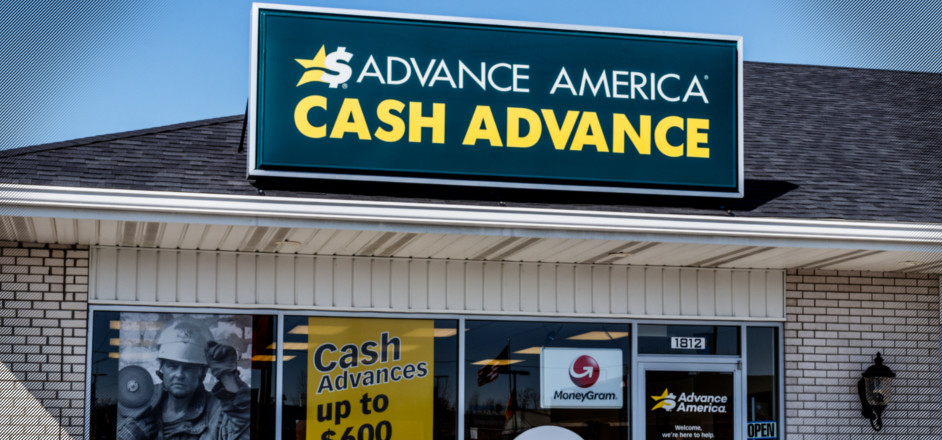Payday loans cost a lot. Sometimes they cost lives.
Denise W. Brooks, a bookkeeper and single mother in Cincinnati, Ohio, owed more on a payday loan than she earned in a paycheck. She thought up a solution: she'd drive to a quiet spot and shoot herself.
Telling the story now, 8 years later, her voice quivers, and she cries.
"I was going to write a letter to my daughter," Brooks says. "That I was so sorry, but I just didn't know if I could go on."
The economy has almost never been better, yet being so broke you need to get a payday loan is as common as being a millionaire. One in 20 adults — 12 million Americans — do it each year, Pew says.
Brooks' story is typical. About 9 months before she considered suicide, she needed $200 to pay her car insurance. Too proud to ask her family for help, she went to a payday lender. When the loan was due, she couldn't pay it back. So she started borrowing money from payday lenders to repay payday lenders. "It just snowballed," she says. The interest stacked up. She got behind on the rent, ready to be evicted.
"It's a hole, and you just can't get out," Brooks says.

These loans are called "payday" because you're supposed to pay them back as soon as you get paid. In fact, if you don't have a job, you can't get one. Borrowers tend to be young and lower middle class. The loans are typically not used for crack or heroin or broken bones or other unforeseen problems, but for baby food, mortgages and car payments. These loans are holes in dams that risk overflowing. The most common type of borrower is a white woman, often single mothers. And, says Carol Hammerstein, spokesperson for the Center for Responsible Lending, "payday lenders locate in neighborhoods where people of color live more frequently than white neighborhoods."
In America, which runs on credit, almost anyone can get a loan, from rich to poor. But wealthy people borrow money at 2 percent, or 5 percent, or maybe 15 percent a year. Strugglers with bad credit get payday loans, which average 129 percent a year in interest. In Ohio, where Brooks lives, the average is 591 percent.
Those rates can seem straight-up diabolical. The Old Testament outlaws them; so does the Koran. President Obama preached against borrowers getting "trapped in a cycle of debt."
"The Bible is not wild about somebody charging $1,000 worth of interest on a $500 loan," he said.
With rates that rival Guido the Leg-Breaker's, there's plenty of hate for payday loan companies, and action against them. In a dozen states, payday lending is against the rules. In others, the interest rates are capped at 36 percent a year.
Payday loans in Colorado "drain nearly $50 million per year from struggling Coloradans," says the Center for Responsible Lending.
And so a new ballot measure, which Coloradans might vote on this year, seeks to put a cap on payday loans at 36 percent.
Corinne Fowler, campaign manager for the ballot initiative, says Colorado loans usually have huge fees: origination fees, monthly maintenace fees. These jack the average rate up to 129 percent, Fowler says. A quarter of Colorado borrowers default on their loans.
Other states and cities are trying to limit interest rates, too. The Ohio House of Representatives, for example, just voted to limit fees at 28 percent. Denise W. Brooks told her story to the Ohio legislature a few times. She cries every time.
The payday loan industry says all this criticism is unfair. Let the free market decide, they say. Most borrowers know what they're getting into, and most pay the loans back. If you lower the fees to 28 percent, the companies say, their business model doesn't work, since the default rate is so high.
"When the consumer-advocacy folks go and advocate for a 36 percent annualized percentage rate, they very clearly understand that that’s industry elimination," Jamie Fulmer, spokesperson for Advance America, one of the biggest payday lenders in the country, told the Freakonomics radio show.
He might be right. When the government acts, payday lending ends. For example, the government declared that payday lenders couldn't charge military members more than 36 percent. Not long after, many payday lenders around military bases shut down.
But that might be okay. One study found that access to payday loans actually hurt military members' performance on the job. And consumer advocates say there are alternatives to payday loans, like credit unions and small banks — financial institutions which, critics say, fund some of the campaigns against payday lenders. (Fowler, the campaign manager in Colorado, says that no banks are backing her group. Instead, it's being supported by nonprofits and faith-based organizations.)
Denise W. Brooks eventually got out of debt the old-fashioned way: she moved in with her brother. With free rent, she paid her bills.
"Whoever you think can help you, swallow your pride and crawl to them," she advises.
Brooks is now a teacher living on her own. She just wants payday lenders gone.
"It's not drug users, it's the working poor, good upstanding people, who are being ripped off by these people," Brooks says. "It's a horrible, horrible thing."
But the part of payday loans that might be the ugliest is this: in order to get one, you need a job. And what does it say about our world that, in some of the best economic times we've ever seen, one in 20 people who are employed can't pay their monthly bills, and are so desperate they turn to usurers for help?



Leave a Reply
You must be logged in to post a comment.